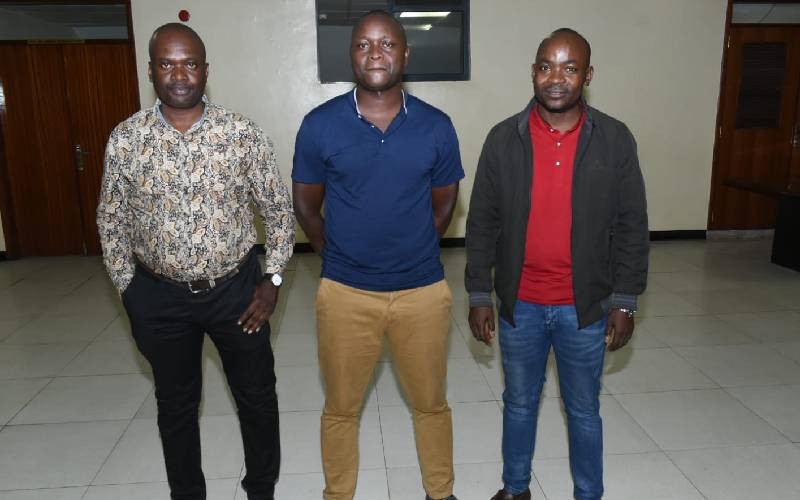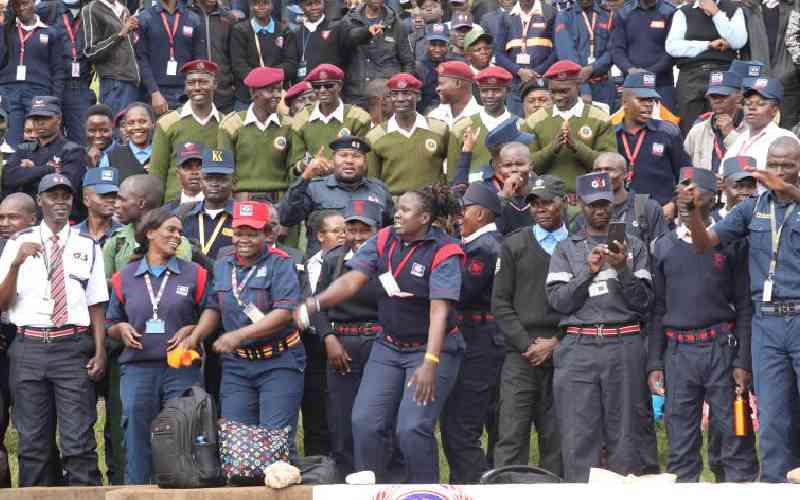Nairobi; Kenya: The features editor at The Standard must have been desperately short-handed when, in 1981 or thereabouts, he assigned a potentially important story to a greenhorn still wet behind the ears.
“I want to buy you lunch,” Mugambi Karanja told me half jokingly, aware in those hungry days that the prospect of a free meal would get my attention in a way that even that of a big story would not have done.
The brief was to the point. Luambo Luanzo Makiadi (Franco), the Zairean musical legend was in Nairobi to discuss a performing contract with DS Njoroge, the veteran promoter and the two would be having lunch at the Tamarind Restaurant at National Bank House on Harambee Avenue.
Only very important people ever got to dine at what was in those days Nairobi’s premier and exclusive feeding trough, and the prospect of having lunch there was almost unnerving for a starving cub reporter.
I was reminded about this incident by the fact that music lovers in Kenya as elsewhere in the world were marking the 25th anniversary of Franco’s death. Passage of time is yet to erase from memory of how I made a fool of myself on that day.
I am still ashamed to confess that the thought of food so preoccupied my mind I gave little thought to the fact that unskilled in journalism as I was, I was being asked to meet and write a story about one of the greatest musicians of that time, certainly Africa’s foremost. Another source of shame is that at the time, I was quite rustic and did not have a clear idea how important the man was. Growing up on the slopes of Mt Kenya, I had vaguely heard about singers like Miriam Makeba and could even recognise a tune or two by the Beatles and Elvis Presley.
But the difference between Joseph Kamaru or Daniel Kamau and people like Franco was quite beyond me. He did not rank very high in Meru.
That was my state of ignorance, then, when I made my way to the Tamarind shortly after 12 noon on the appointed day and announced to the person who seemed to be in charge that as a representative of The Standard, I had a lunch appointment with Franco. The man looked me up and down and, seeming unimpressed, conferred with some other people and a decision was apparently made to accommodate me despite my appearance.
I was politely shown to a table at a corner of the restaurant to wait my for hosts. Apart from the cutlery, there were bowls with cashewnuts and roast pieces of coconut.
I was starving and I just started helping myself to the nuts. I was quite oblivious of the embarrassment caused to the restaurant’s staff by the ravenous manner in which I devoured the hors d’oeuvres.
My hosts were running late but given the circumstances, I was not worried.
I ploughed on, and within no time the bowls were empty and with a reproachful cough, a waitstaff replenished them. Noon turned to afternoon and by two I was also getting uneasy, not least because of the suspicious looks I was beginning to attract from the waitstaff.
One came over to the table and after pointedly looking at his watch and a second empty bowl, asked if I was absolutely sure that I had an appointment. I haughtily assured him that I would not be there unless I had one.
Finally, I was forced to admit that the lunch appointment had aborted and I had to leave, which I did followed by stares that said “We know people like you.”
Outside the building, I found DS Njoroge talking to an unprepossessing man and I did not spare as much as a glance.
Stay informed. Subscribe to our newsletter
I was angry at having been stood up, besides being denied a free lunch, and gave him a piece of my mind.
Calling me aside, he accused me of lacking manners and asked if I knew that I was in the presence of the great maestro himself.
I was unimpressed, and strode off after letting him know, in no uncertain terms, what I thought of him.
 The Standard Group Plc is a
multi-media organization with investments in media platforms spanning newspaper
print operations, television, radio broadcasting, digital and online services. The
Standard Group is recognized as a leading multi-media house in Kenya with a key
influence in matters of national and international interest.
The Standard Group Plc is a
multi-media organization with investments in media platforms spanning newspaper
print operations, television, radio broadcasting, digital and online services. The
Standard Group is recognized as a leading multi-media house in Kenya with a key
influence in matters of national and international interest.
 The Standard Group Plc is a
multi-media organization with investments in media platforms spanning newspaper
print operations, television, radio broadcasting, digital and online services. The
Standard Group is recognized as a leading multi-media house in Kenya with a key
influence in matters of national and international interest.
The Standard Group Plc is a
multi-media organization with investments in media platforms spanning newspaper
print operations, television, radio broadcasting, digital and online services. The
Standard Group is recognized as a leading multi-media house in Kenya with a key
influence in matters of national and international interest.








